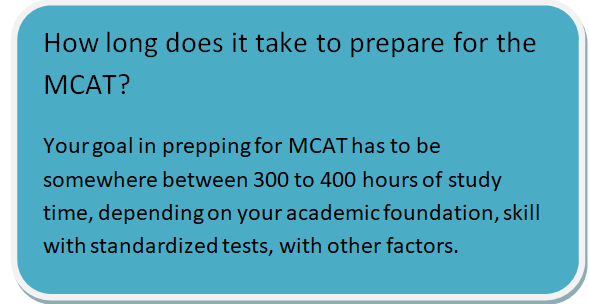
MCAT plays an important role in what medical schools look for in an applicant. The average MCAT score for medical school applicants was 505.9, whereas the average MCAT score for medical school matriculants was 511.9. Here, we will yield the MCAT Exam Analysis: What Students need to know on how to ace this exam.
To those who have not yet started studying for the exam, MCAT has a mysterious aura. It is one of the last obstacles that you may face on this premed journey- and it’s notoriously difficult. Some people have also asked, ‘Is the MCAT too difficult’?
Each year, plenty of students do well on this MCAT exam, making them even stronger candidates for medical school.

How Tough is MCAT?
We will identify some points on why the MCAT exam can be tough for students.
MCAT Exam is Lengthy!

The testing time is 6 hours and 15 minutes while the total seated time is just over 7.5 hours. This makes the exam much longer than its standardized testing counterparts.
| Standardized Test | Length |
| MCAT | 7.5 hours |
| ACT | 3.5 hours |
| GMAT | 3.75 hours |
| LSAT | 3.5 hours |
You Need Command Over Multiple Subjects
The MCAT includes 230 total questions that cover many different subjects including General Chemistry, Organic Chemistry, Physics, Biology, Reading Comprehension, Biochemistry, Psychology and Sociology.
:max_bytes(150000):strip_icc()/mcat_interface_highlight-fdff7676c3e0499d8d38ebba20fc5237.jpg)
From this list, it can be observed that some of the subjects are quite different. For instance, you will be required to study differently for Sociology than you would for Organic Chemistry.
If you’re looking for expert tutors to help you breeze through the process of preparing for MCAT, you can find them at the Filo App. Filo is the all in one live tutoring solution for all your needs! Download the Filo App Now!

We would encourage you to review our guide on developing an ideal MCAT study schedule by checking the following link MCAT Exam Pattern 2022: Check Eligibility, Marking Scheme, Dates, & More!
MCAT is a passage-based exam
The format of the exam is passage-based which implies that almost all questions on the exam have to be associated with a six- to seven-paragraph message. This may add a layer of complexity to the exam as you can’t simply recall facts that you have memorized in order to answer questions correctly. You have to synthesize information from the passage and interpret graphs in the context of the background knowledge.
MCAT Difficulty Analysis

Chemical and Physical Foundations of Biological Systems
The section seemed to be pretty fair; there were lots of ORGO and really not a lot of physics!
Critical Analysis and Reasoning Skills
The passages were pretty fair. One can finish the section on time. Calming down and them attempting this section is advised.
Biological and Biochemical Foundations of Living Systems
There were lots of specific things on the test, and the section demands BIO to be the strong point of the aspirant.
Psychological, Social and Biological Foundations of Behaviour
For this section, it is advisable to review the AAMC sample exam! It’s really easy to get confused with terms especially when an aspirant is getting tired.
It is really recommended to solve as many practice problems and exams as possible.
MCAT Myths Debunked!
Myth #1
Aspirants need knowledge of upper-division sciences in order to do well on the MCAT.
Fact
According to the AAMC, aspirants only need an introductory level of knowledge of Physics, Biology, Organic and Inorganic Chemistry, Biochemistry, Psychology and Sociology for the MCAT. Some passages may describe upper-division topics.
Myth #2
Aspirants don’t need to prepare thoroughly for the MCAT if they are doing well in your pre-med courses.
Fact
Nearly 50% of all MCAT test takers sit for the MCAT a second time due to inadequate preparation the first time, and many of those people are doing just fine in science courses.
Myth #3
The test checks science skills. You don’t need to worry as much about the verbal section.
Fact
Good reading skills are crucial for the MCAT, even in the science sections. Medical School admissions officers actually weigh the critical analysis and reasoning section the heaviest of the entire MCAT, as they consider it as a measure of students’ ability to learn and communicate.
Myth #4
There’s a magic number that an aspirant has to score on the MCAT in order to get into a competitive medical school.
Fact
Total scores for MCAT are centred at 500, which ranges from 472 to 528. The aspirant’s score alone will not predict the acceptance or rejection from a competitive medical school. There is a wide range in scores that medical schools deem to be acceptable, and they will also consider application elements before making a final decision.
Also, check the following link to get more updates about MCAT MCAT Preparation Guide: Check the exam pattern, tips and new changes
Frequently Asked Questions (FAQs)
What is the maximum length of MCAT prep time?
Most students will require 10 to 15 hours per week for at least four to six months to study for the MCAT.
When should a student take the MCAT in preparation for the 2022 cycle?
Between January and April of your application year, you should take the MCAT for the last time. If a student wants to start medical school in August 2023, for example, you’ll need to take the MCAT within the first four months of 2022- no later than April 2022.
How far back the MCAT scores are accepted by the Medical Schools?
Each school is different but mostly the schools accept the scores from tests taken 3 to 5 years ago.
Will medical schools be aware if I void my exam?
Medical Schools do not keep this record of exams you chose to void or no-show. Medical schools only have access to the exams you decided to score. Note, voids or no-shows count as an attempt towards your testing limits.
Summing Up!
Remember, if you ever get confused, don’t be afraid to ask our expert tutors by downloading the Filo App now!
We hope you have benefitted from the information on this blog. Please share your thoughts about the MCAT tests!

